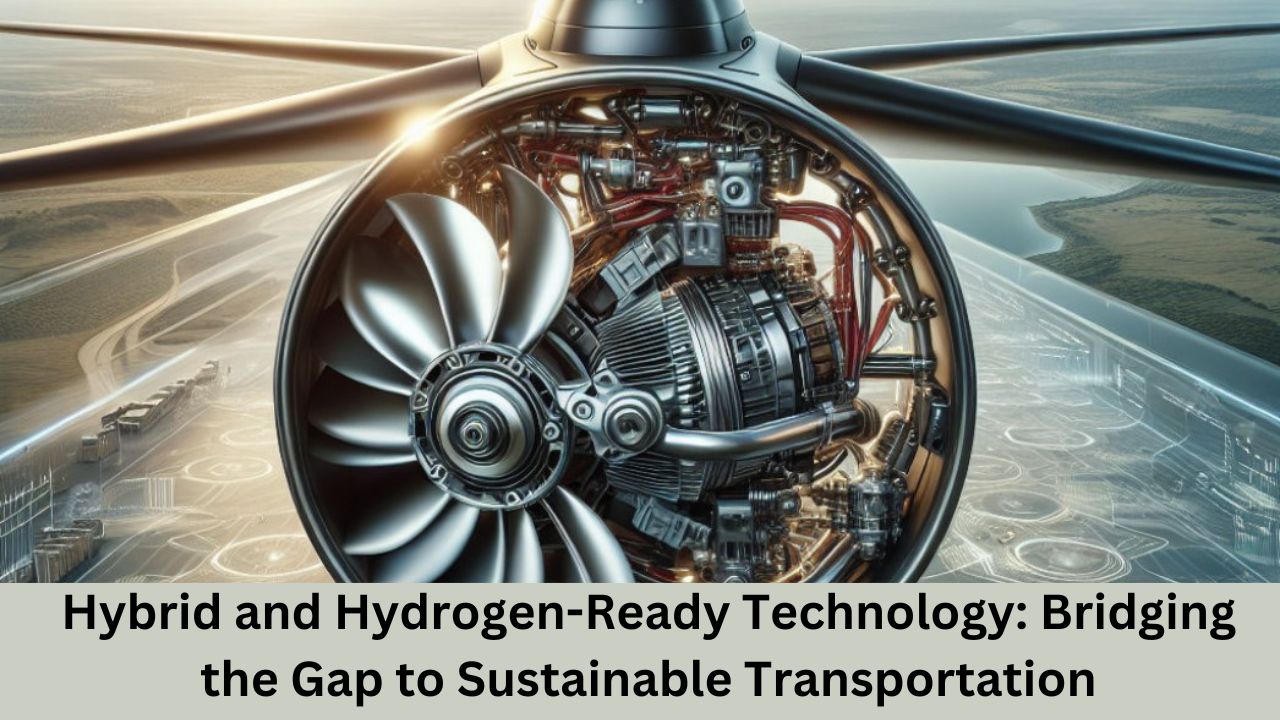Hybrid and Hydrogen-Ready Technology: Bridging the Gap to Sustainable Transportation
- February 13, 2025
- Sustainable Transportation
- Posted by admin
- Comments Off on Hybrid and Hydrogen-Ready Technology: Bridging the Gap to Sustainable Transportation
Due to this growing demand for janitorial services, it is now easier than ever to realize the investment in your other commercial resources, such as the transportation industry. In response, hybrid and hydrogen-ready technologies are paving the way towards lower carbon footprints and greater efficiency on a global scale. Transitioning to cleaner mobility solutions has been a hot topic of recent years, and here, hybrid engines, as well as hydrogen combustion engines, are two of the major innovations.

The Evolution of Hybrid Engine Technology
For nearly 20 years, the hybrid engine was all the rage: engines that paired internal combustion with electrical propulsion. A successful midway point that allows for maximum fuel usage and emissions reduction, an effective interim measure while we make the transition towards full electrification.
A hybrid engine dealer is key in getting consumers the newest advancements in hybrid technology. From plug-in hybrid to self-charging hybrid, these hybrid car dealers provide a wide range of hybrid models to fit your needs. Benefits of Hybrid Vehicles include the following:
Greater Fuel Economy:
Hybrid engines minimize fuel wastage as they alternate between electric and gasoline power.
Lower Emissions:
Another great advantage of hybrid cars, is that they emit much less CO2 than conventional combustion engine vehicles.
Regenerative Braking:
Several hybrid vehicles also incorporate regenerative braking which converts kinetic energy into electrical energy, for added efficiency.
Tax Incentives and Benefits:
To encourage hybrid vehicle adoption, many countries provide tax benefits, grants, and incentives.
Hydrogen Combustion Engines: The Next Big Thing
Hybrid technology tinges the immediate gains, but hydrogen-powered cars are the next level of green driving. A hydrogen combustion engine works like traditional internal combustion engines, with the exception that hydrogen is the energy source rather than gasoline or diesel. Unlike battery-electric vehicles, which need to be plugged in at charging stations, hydrogen-fueled cars can be recharged quickly, like conventional vehicles.
Some advantages of hydrogen combustion engines are:
Zero Carbon Emissions:
Hydrogen combustion results in water vapor rather than carbon exhaust and is thus a clean-burning fuel.
Quick Refueling:
Hydrogen-powered vehicles can be refueled in minutes, as opposed to battery-powered electric vehicles that need a long time to charge.
Long-Term Efficiency:
High energy output coupled with high efficiency makes hydrogen engines perfect for heavy-duty and heavy-load applications such as commercial and industrial vehicles.
Energy Independence:
Hydrogen can be generated from renewable energy sources like wind, solar and water electrolysis, decreasing dependency on fossil fuels.
Due to its great potential, many major car manufacturers and tech companies are investing heavily in hydrogen-powered transport and building infrastructure in the form of hydrogen stations around the world.
Hybrids vs. Hydrogen: A Hybrid Between the Two
Finally, hybrid technology is a door opened to cut CO2 emissions as well as fuel consumption immediately, while hydrogen combustion engines present a more distant approach for sustainable mobility offering zero emissions potential. The comparison ultimately comes down to things like infrastructure, cost, and particular transportation needs, so hybrids might not necessarily be worse than hydrogen cars.
Urban Commuters & Passenger Vehicles:
For the urban commuters, the hybrid vehicles offer a solution to the city vehicle with real improved fuel economy and cut down emissions.
Hydrogen Engines for Heavy-Duty & Long-Distance Travel:
Hydrogen-powered engines are more suitable for heavy-duty vehicles and long-distance transportation because they have faster refueling capabilities and can provide high power output for an extended period of time.
Sustainability Goals:
With the growth of hydrogen infrastructure, more companies and individuals may move to hydrogen-based vehicles, leading to a full ecosystem of sustainable transport.
The key to sustainable transportation is an approach that includes both short and long-term fixes. Dealers of hybrid engines bridge the gap by selling low-emission and fuel-efficient vehicles, and hydrogen combustion engines mark a step toward a future free of carbon emissions.
Ahiravata are at the forefront of this movement with cutting-edge hydrogen combustion technology to deliver a greener, cleaner future. With the horizon of sustainable mobility, hybrid and hydrogen-ready are essential drivers in our reduction of the environmental impact that we create to achieve a genuinely sustainable world.



